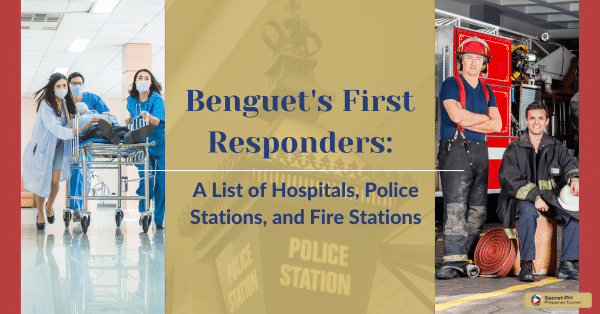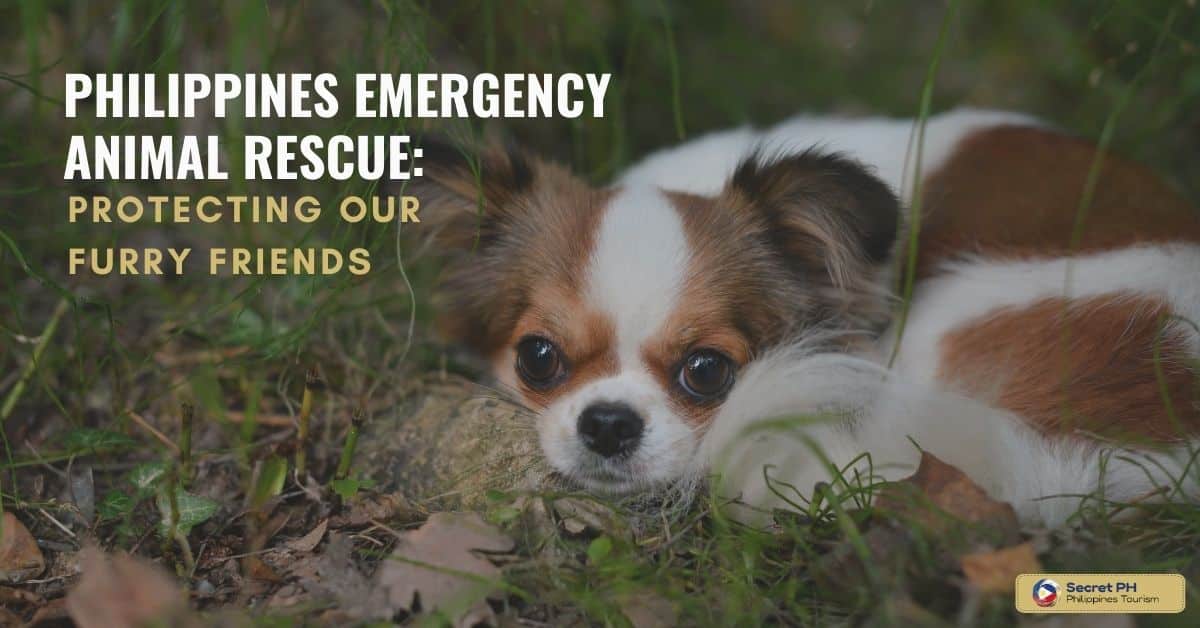Emergency services are essential for providing assistance and relief during times of disaster and crisis.
Government agencies have a vital role in providing emergency services in the Philippines. The Philippine National Police (PNP), Bureau of Fire Protection (BFP), Philippine Coast Guard (PCG), and Philippine Red Cross are key organizations responding to emergencies and aiding affected communities. Working together is essential for effective emergency response, although limited resources and natural disasters can present challenges.
This article will discuss the role of these government agencies in providing emergency services and the challenges they face. It will also highlight some of the initiatives taken by both local and national governments to ensure the safety and welfare of their citizens during times of natural and man-made disasters.
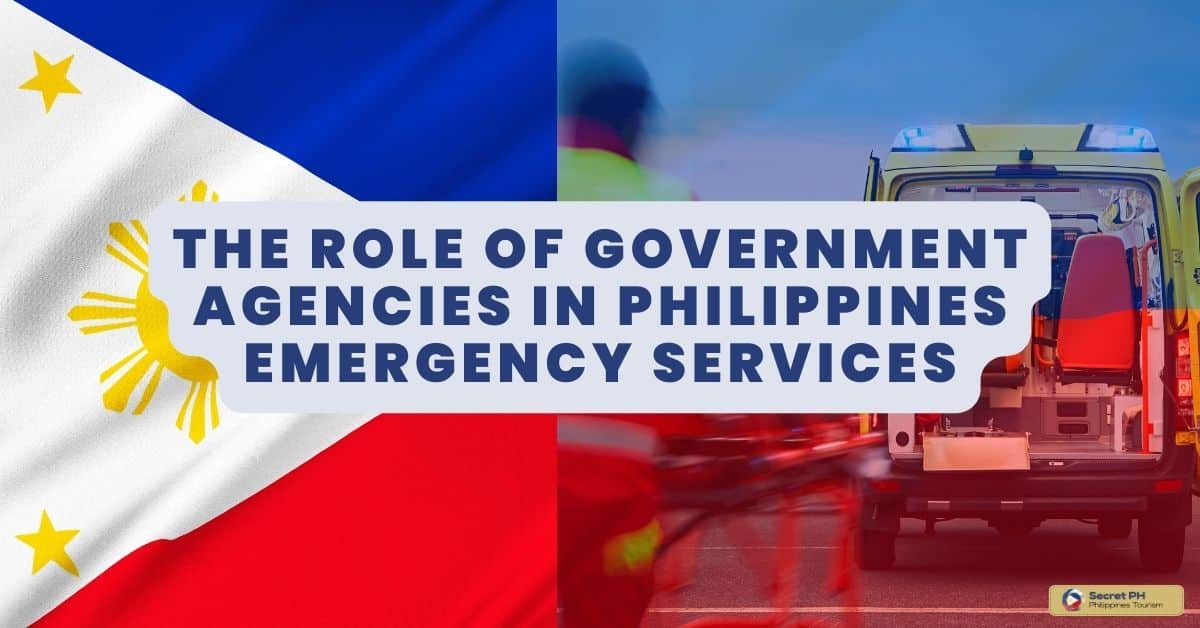
The Role of Government Agencies in Emergency Services
Government agencies in the Philippines are responsible for providing emergency services to the public during times of crisis. These agencies work together to ensure that quick and efficient response is provided to individuals affected by natural disasters, accidents, and other emergencies. They are equipped with the necessary resources, technology, and expertise to respond to various types of emergencies.
The Philippine National Police, Bureau of Fire Protection, Philippine Coast Guard, and Philippine Red Cross are among the key agencies involved in emergency services. Each agency has a unique role in responding to emergencies and working collaboratively to provide assistance to affected communities. The effectiveness of emergency response greatly depends on the coordination and collaboration among these agencies, highlighting the importance of strong partnerships and communication channels.
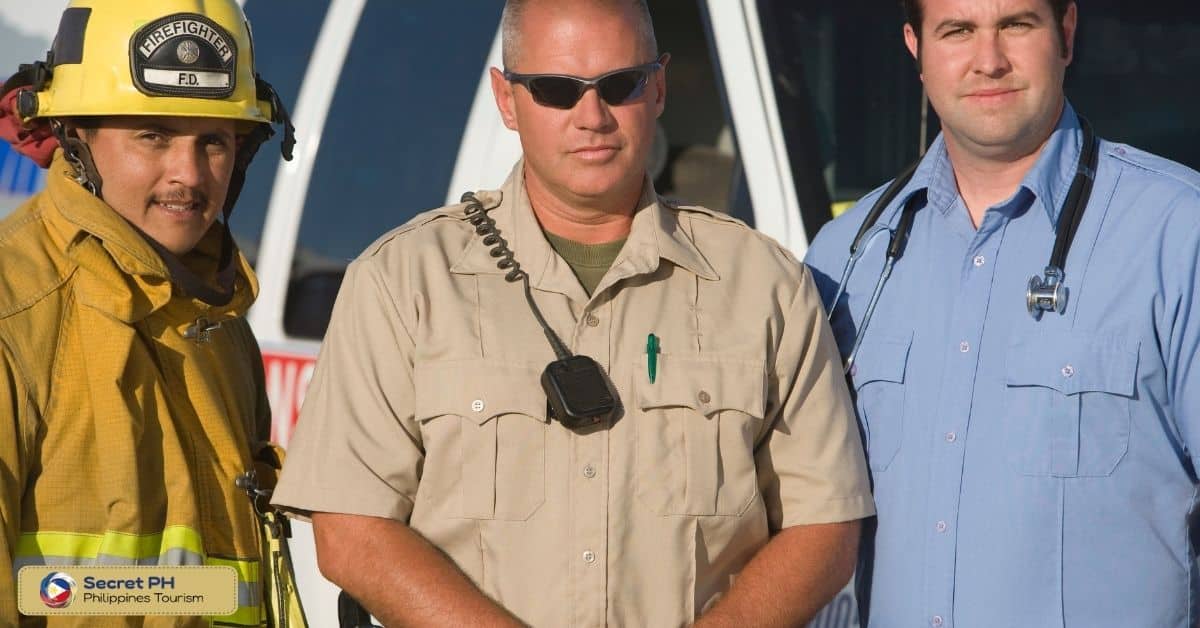
The National Disaster Risk Reduction and Management Council (NDRRMC)
Natural calamities in the Philippines are significantly increasing in frequency and intensity. Thus, it has become more critical than ever to implement strategies and action plans to mitigate their impacts. Among the various government agencies involved in managing emergency services in the Philippines, the National Disaster Risk Reduction and Management Council (NDRRMC) plays the most significant role in ensuring the safety and welfare of the public during times of disaster.
The National Disaster Risk Reduction and Management Council is a government agency under the Department of National Defense that is responsible for coordinating the preparedness, prevention, response, and recovery efforts for all types of natural disasters and emergencies in the country. The NDRRMC carries out its mandate through collaboration with other government agencies, the private sector, and volunteer organizations.
The NDRRMC has several functions, but its primary roles are to:
Develop and implement policy guidelines, protocols, and standard operating procedures for disaster management
- Coordinate with different agencies and organizations involved in emergency services
- Mobilize resources, including personnel, equipment, and other assets for disaster management
- Conduct risk assessments and recommend measures to prevent or reduce the impacts of disasters
- Disseminate information to the public about disaster awareness, preparedness, and response
- Ensure the prompt delivery of relief and recovery services to affected communities
Trunk lines:
Operation Center:
For more information, click here.
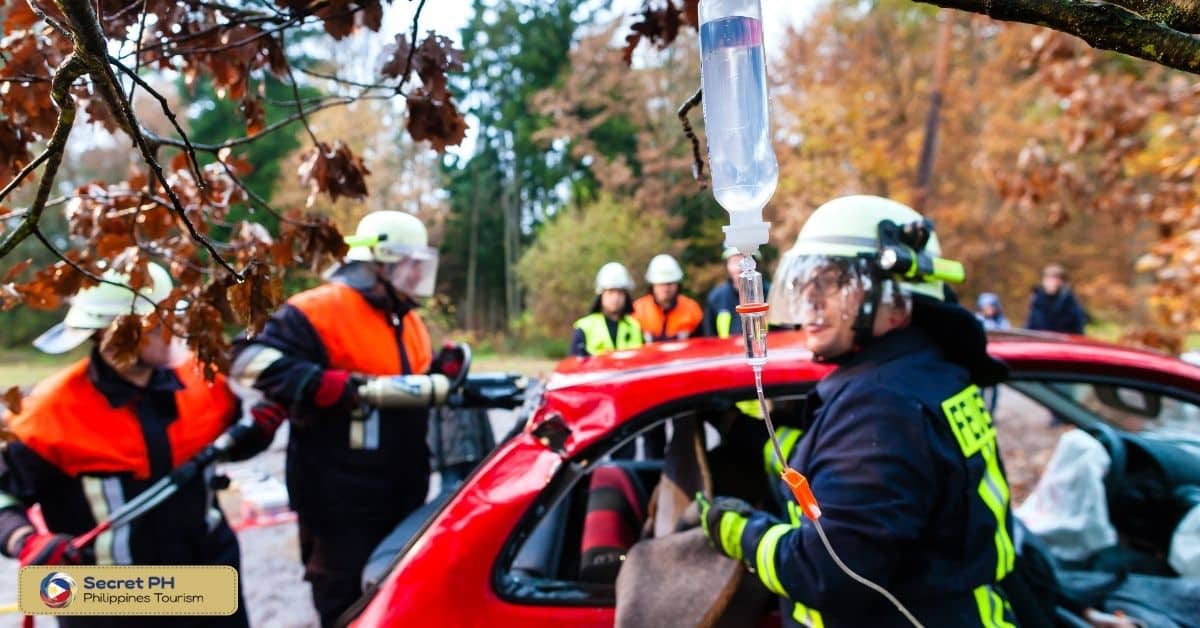
The Philippine National Police (PNP)
The Philippine National Police (PNP) is one of the most important government agencies in the country, tasked with upholding the rule of law and ensuring the safety and security of the Filipino people. As part of the country’s emergency services, the PNP plays a crucial role in responding to various crises, from natural disasters to civil unrest.
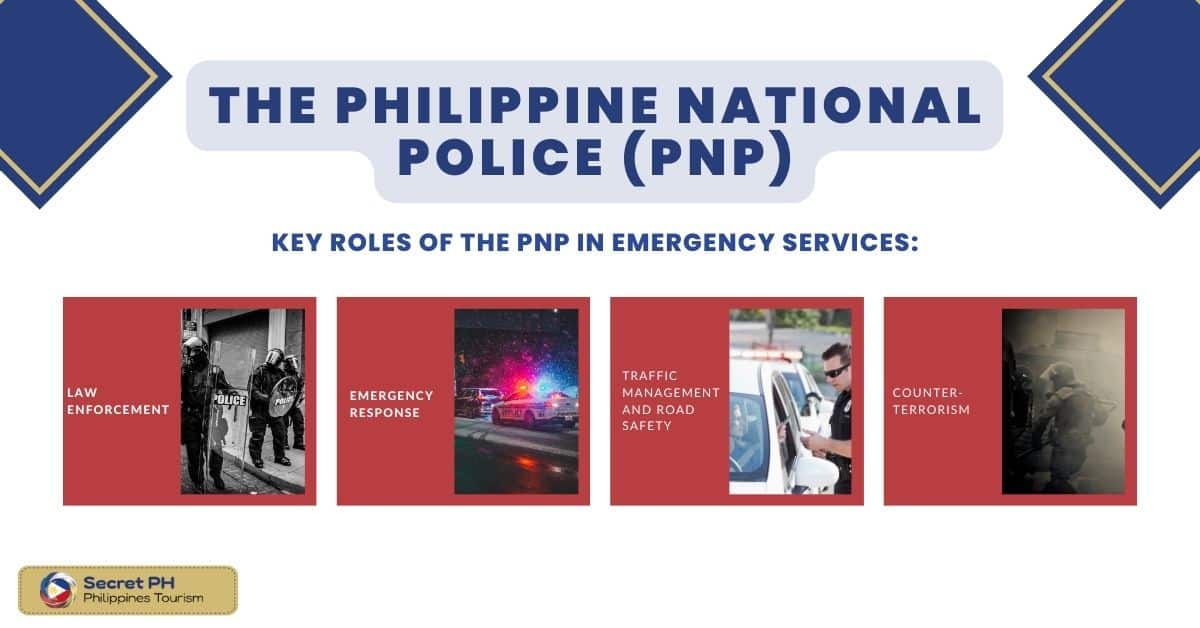
Law Enforcement
One of the primary functions of the PNP is law enforcement. The department is responsible for maintaining peace and order and enforcing the law throughout the country. This includes investigating crimes, arresting suspects, and preventing criminal activity.
Emergency Response
The PNP is also an essential part of the country’s emergency response system. During natural disasters such as typhoons, earthquakes, and floods, the PNP plays a critical role in search and rescue operations, helping to evacuate residents from affected areas, and providing medical aid to those in need.
Traffic Management and Road Safety
Another area in which the PNP plays a crucial role in traffic management and road safety. With the aim of reducing road accidents, injuries, and fatalities, the PNP regularly conducts road safety campaigns and deploys traffic officers to congested areas to ensure smoother traffic flow and compliance with road safety rules.
Counterterrorism
In recent years, the PNP has also played a significant role in counterterrorism efforts. With the rise of extremist groups in the country, the PNP has implemented various measures to prevent terrorist attacks and maintain the country’s security.
Hotline Number: 117
For more information, click here.
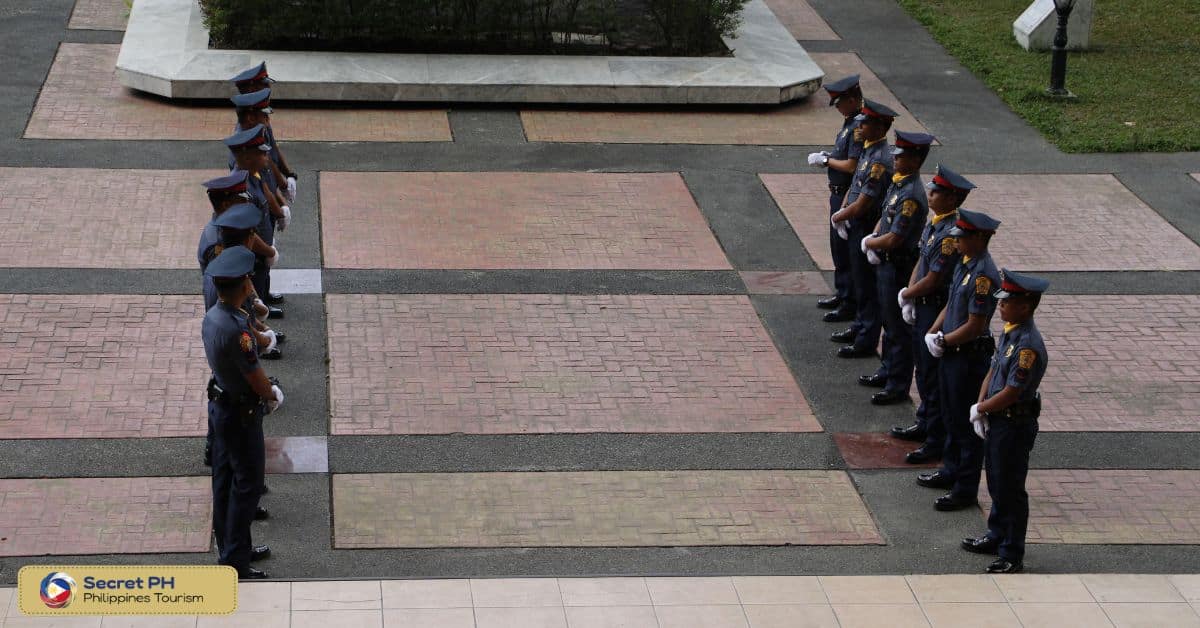
The Bureau of Fire Protection (BFP)
The BFP is the primary agency responsible for fire prevention, suppression, and control in the Philippines. The agency is tasked with providing firefighting and rescue services, as well as promoting fire safety awareness and education. They respond to fire and other emergencies with well-trained personnel and modern firefighting equipment.
Firefighting and Rescue Services
The BFP plays a critical role in fighting fires and rescuing people in emergency situations. They deploy skilled firefighters and emergency responders who are trained in handling various types of fires and rescue operations. This personnel uses advanced firefighting and rescue equipment like fire trucks, hoses, breathing apparatus, and hydraulic rescue tools to quickly and effectively control fires and rescue people trapped in burning buildings or vehicles.
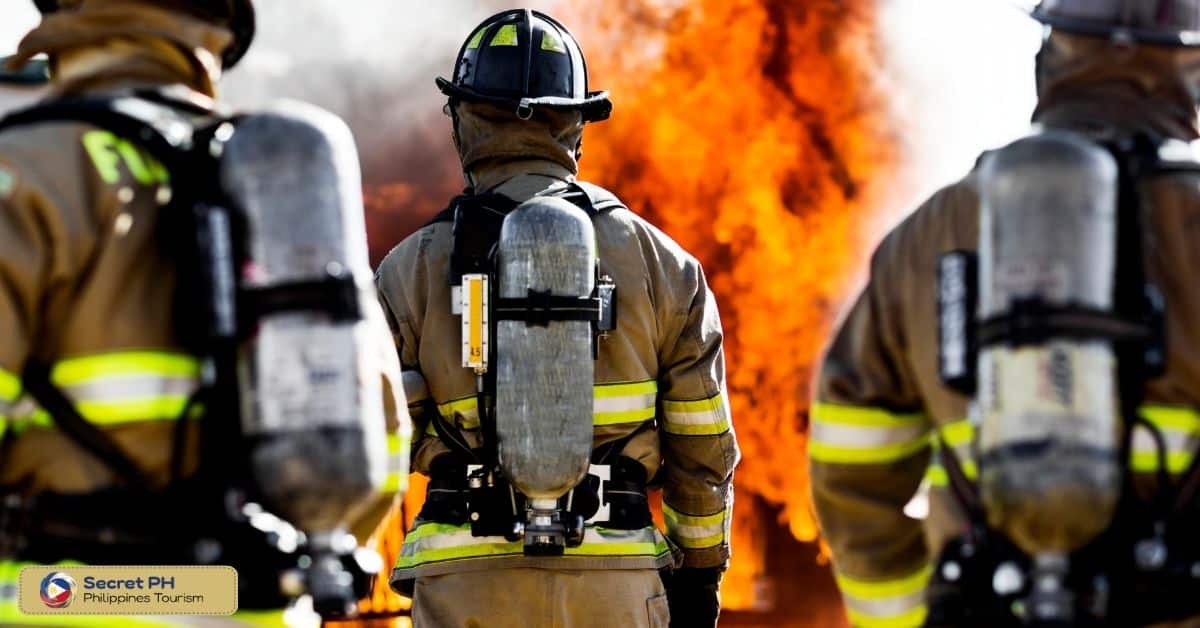
Promoting Fire Safety Education
The BFP’s mandate is not only to fight fires and provide rescue operations but also to prevent fires from occurring by promoting fire safety education. They organize events and programs that focus on educating the public about fire prevention measures and safety practices. These programs usually include fire drills and demonstrations of firefighting equipment, and they are targeted at schools, communities, and workplaces.
Direct lines:
For more information, click here.
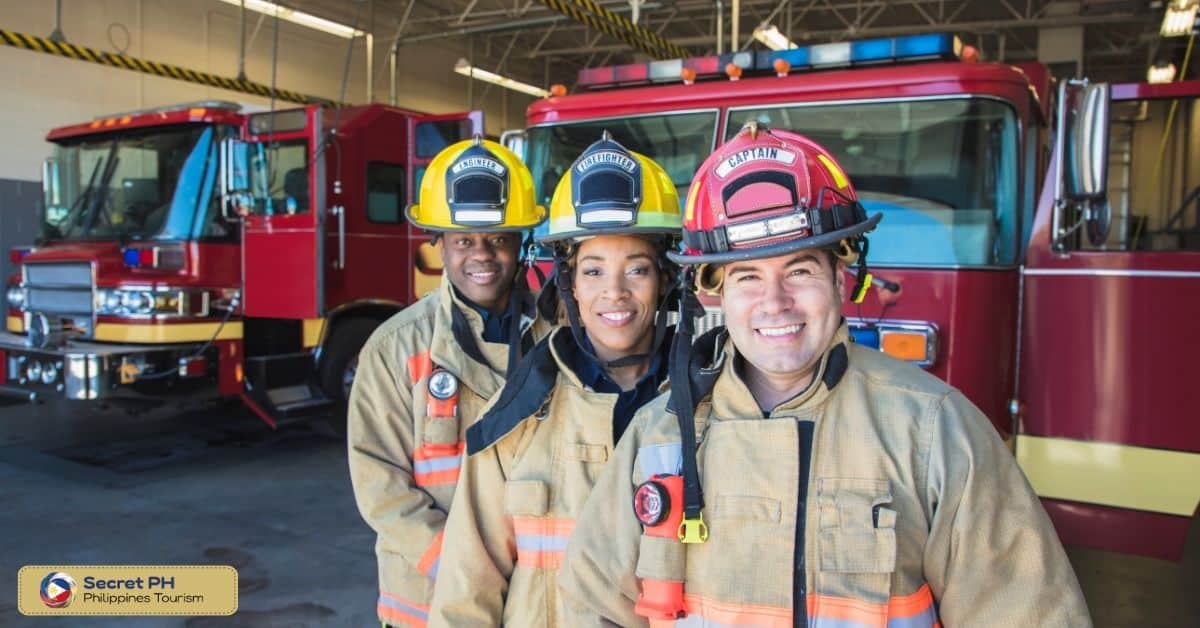
The Philippine Coast Guard (PCG)
The Philippine Coast Guard is a maritime agency of the Philippine government that is responsible for search and rescue operations, maritime safety, and marine environmental protection. The PCG is under the jurisdiction of the Department of Transportation and is mandated to conduct safety inspections and surveys of vessels, provide maritime security, and enforce maritime laws and regulations.
The Philippine Coast Guard is a key player in emergency services, with a range of responsibilities and functions including:
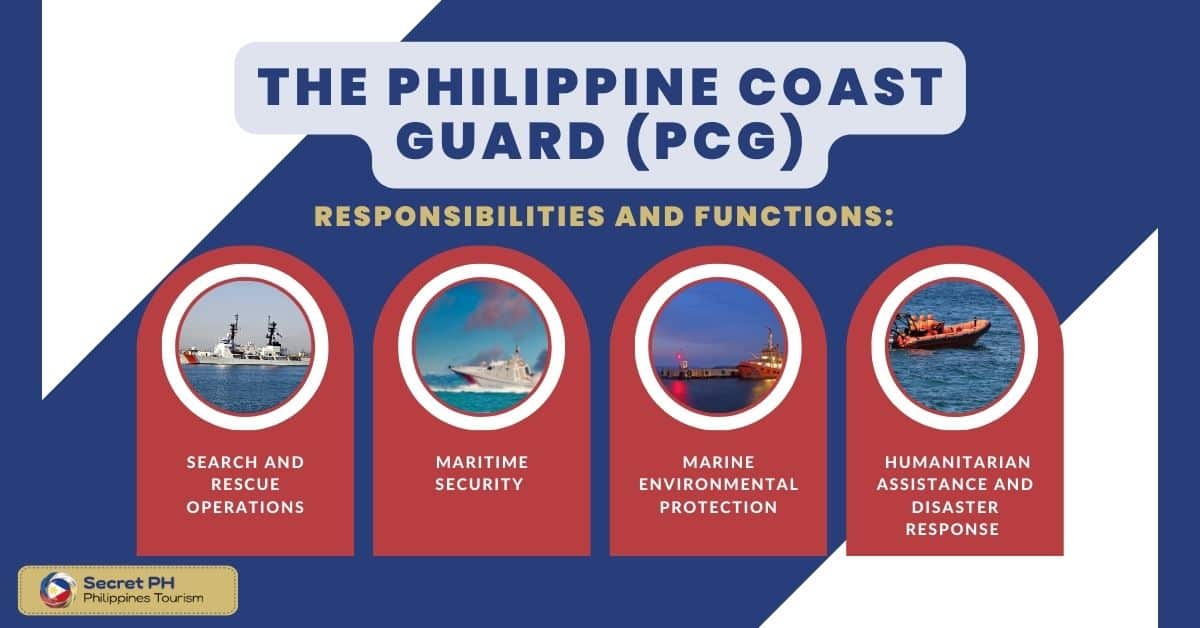
1. Search and Rescue Operations – In the event of maritime accidents or disasters, such as ship collisions or passenger vessel accidents, the PCG is responsible for conducting search and rescue operations. The PCG has specialized units, like the Special Operations Group, trained specifically for search and rescue, and they coordinate with other government agencies and non-government organizations to ensure that rescue efforts are carried out safely and effectively.
2. Maritime Security – The PCG is also responsible for ensuring the safety and security of Philippine waters by implementing maritime security measures, including the monitoring of vessel traffic, conducting maritime patrols, and enforcing maritime laws.
3. Marine Environmental Protection – The PCG, together with government agencies like the Department of Environment and Natural Resources, is responsible for protecting the marine environment from activities that may cause harm to the ecosystem, including oil spills and other forms of marine pollution.
4. Humanitarian Assistance and Disaster Response – As a first responder in maritime emergencies, the PCG also provides humanitarian assistance and disaster response to affected communities. This includes the provision of immediate assistance and supplies to affected individuals, as well as the establishment of temporary shelters and medical facilities.
Hotlines:
Text hotline:
For more information, click here.
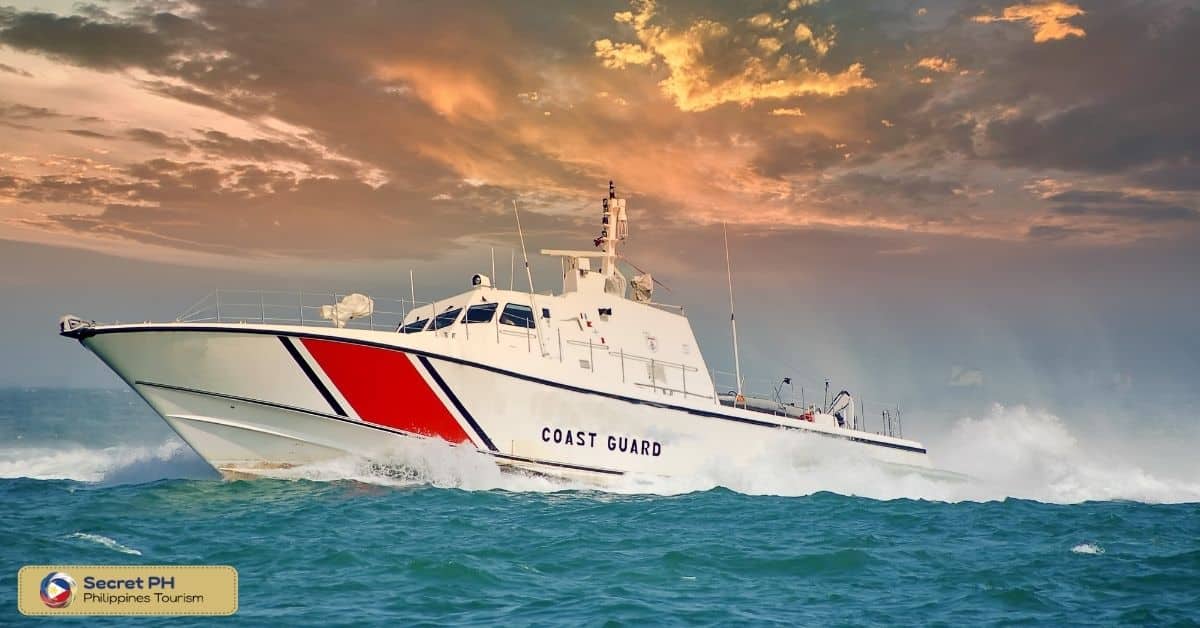
The Department of Health (DOH)
The Department of Health (DOH) is a government agency in the Philippines responsible for ensuring the accessibility and delivery of healthcare services to the public. The DOH has a crucial role in promoting public health, managing healthcare facilities, and responding to health emergencies across the country. With its broad range of responsibilities, the DOH plays a vital role in emergency services across the country.
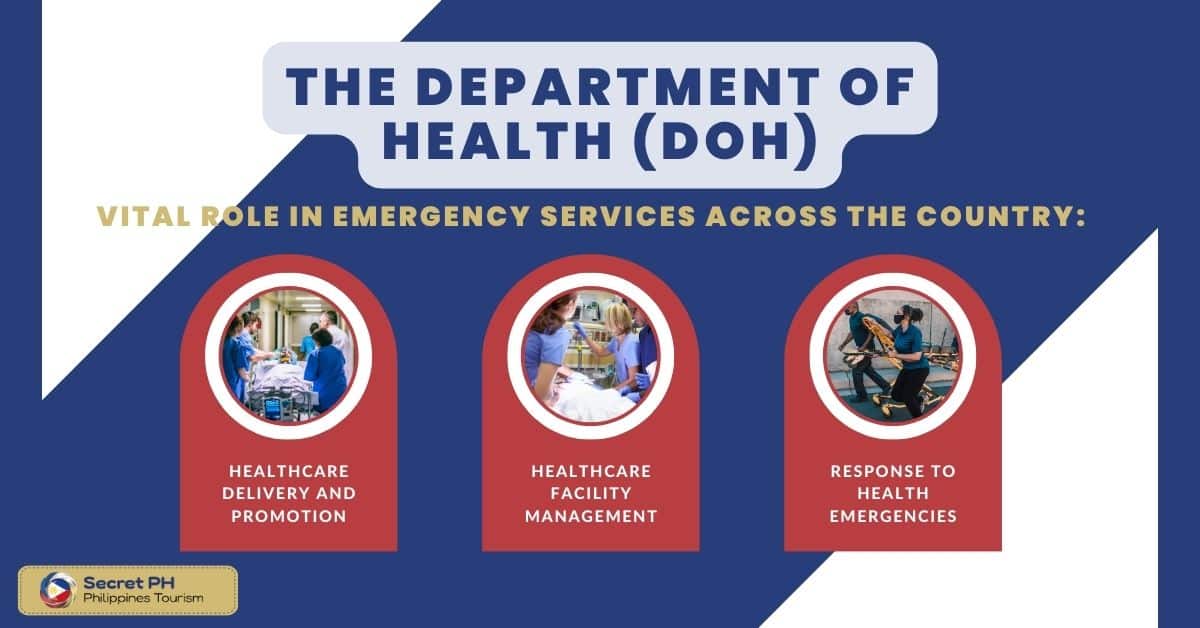
Healthcare Delivery and Promotion
The DOH is responsible for providing access to quality healthcare services to the public. It ensures that healthcare facilities are properly equipped and staffed to meet the needs of patients. The DOH also promotes public health by implementing programs and campaigns that raise awareness of health risks and encourage healthy behaviors.
Healthcare Facility Management
The DOH manages and regulates healthcare facilities in the Philippines, including hospitals, clinics, and other medical institutions. It sets standards for healthcare facilities, monitors compliance, and provides guidance to ensure that patients receive quality care.
Response to Health Emergencies
The DOH plays a critical role in responding to health emergencies in the Philippines. It coordinates with other government agencies and organizations to provide medical assistance and relief to affected communities. During disease outbreaks and pandemics, the DOH is responsible for implementing measures to control the spread of the disease and ensure that medical resources are efficiently distributed.
Hotlines:
For more information, click here.

The Department of Social Welfare and Development (DSWD)
The Department of Social Welfare and Development (DSWD) is a government agency responsible for promoting the social welfare of Filipinos. The agency provides assistance to vulnerable sectors of society such as the elderly, persons with disabilities, and children. In times of emergencies, the DSWD takes on an even more significant role in providing assistance to affected families and communities.
In times of emergencies, the DSWD is responsible for providing immediate assistance and relief to affected families and individuals. The agency works closely with local government units (LGUs) to ensure that those in need receive the necessary aid as quickly as possible.
Here are some of the key roles of the DSWD in emergency services:
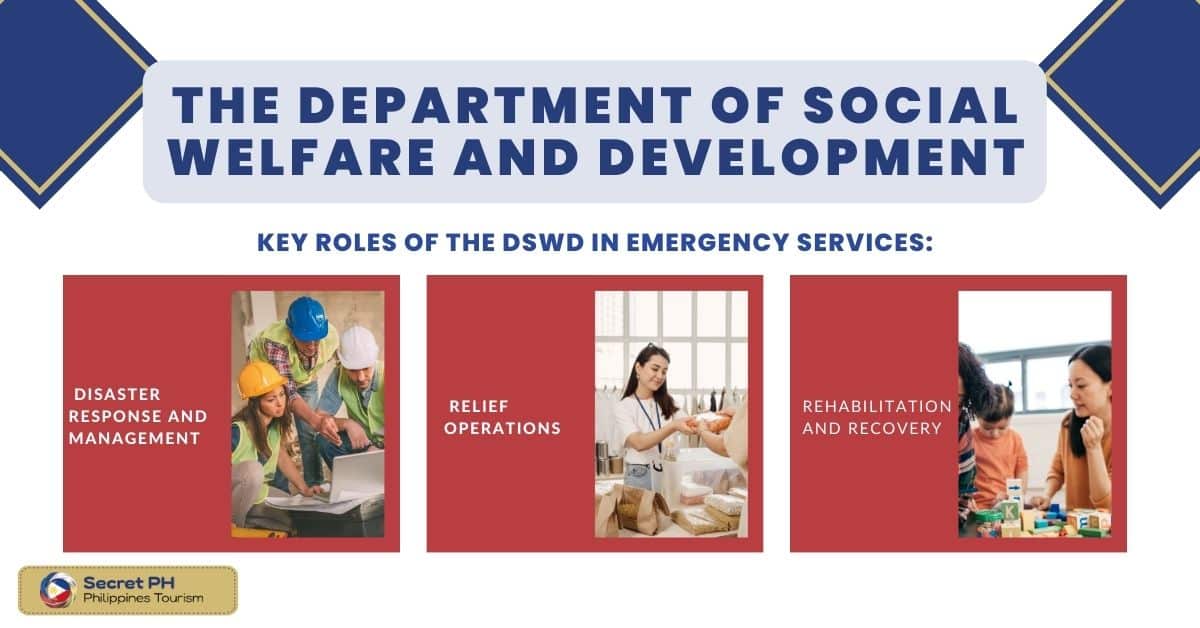
Disaster Response and Management
The DSWD is responsible for coordinating disaster response and management efforts in times of emergencies. The agency works with other government agencies and non-government organizations (NGOs) to ensure that affected communities receive the necessary assistance and support.
Relief Operations
The DSWD provides relief assistance to affected families and individuals in times of emergency. Relief assistance may include food and non-food items such as blankets, water, and hygiene kits.
Rehabilitation and Recovery
Once the immediate needs of affected families and individuals have been addressed, the DSWD works on the long-term rehabilitation and recovery of affected communities. The agency provides livelihood assistance to help those who have lost their source of income due to the disaster.
Text Hotlines: +63918-912-2813
Trunk line: (02) 8931-8101 to 07
Disaster Response Unit: (02) 8856-3665, (02) 8852-8081

Challenges Faced by Government Agencies in Emergency Services
Philippine government agencies play a critical role in emergency services, working tirelessly to coordinate response efforts and alleviate the impact of disasters. However, these agencies face a number of significant challenges in their mission to protect the public.
1. Lack of Funding and Resources– One of the most pressing issues facing government agencies involved in emergency services is a chronic lack of funding and resources. Many emergency response teams in the Philippines operate on a shoestring budget, with limited access to equipment, training, and personnel. This can create serious bottlenecks in the response efforts, slowing down rescue operations and putting more lives at risk.
2. Poor Infrastructure– The state of infrastructure in the Philippines is another major challenge faced by emergency services. Poor roads, outdated communication systems, and inadequate transportation can all hinder the response efforts of government agencies during a disaster. In some cases, emergency responders are forced to resort to using outdated or makeshift equipment, which can be dangerous and further exacerbate the situation.
3. Inadequate Planning and Preparation– Effective emergency response requires careful planning and preparation, with clear protocols and procedures in place for dealing with different situations. However, many government agencies in the Philippines are not adequately prepared for emergencies, with insufficient training and experience in emergency response. This can lead to confusion and disorganization during a crisis, making it more difficult to save lives and prevent further damage to infrastructure.
4. Political Interference– Also create challenges for government agencies involved in emergency services. In some cases, politicians may use disaster response efforts as an opportunity for personal gain or political posturing, diverting resources away from where they are most needed. This can create further confusion and disorganization, as different agencies and individuals try to assert their authority and influence over the response efforts.
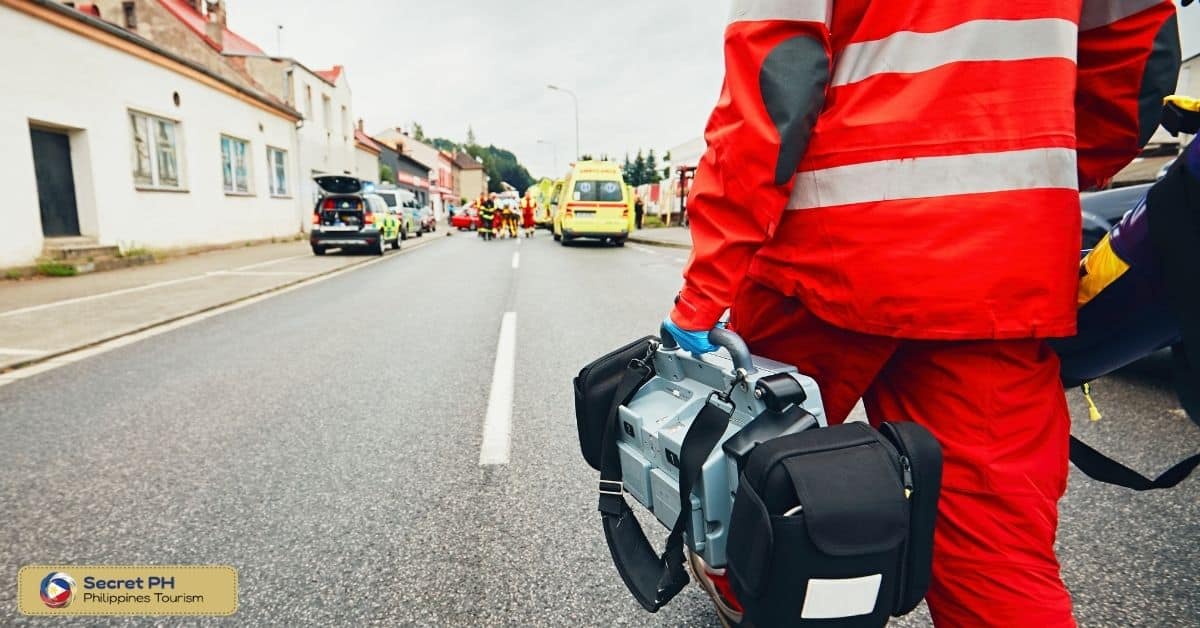
In conclusion
Government agencies play a vital role in emergency services in the Philippines. From law enforcement to fire safety and disaster response, these agencies are tasked with providing assistance, relief, and protection to Filipino citizens during times of crisis.
These government agencies face various challenges such as inadequate resources and coordination difficulties, but they remain dedicated to their mandates of protecting the safety and well-being of Filipinos. With the support of other stakeholders such as private companies, NGOs, and volunteer organizations, these agencies can continue to provide effective emergency services and improve their capacity to respond to crises.



